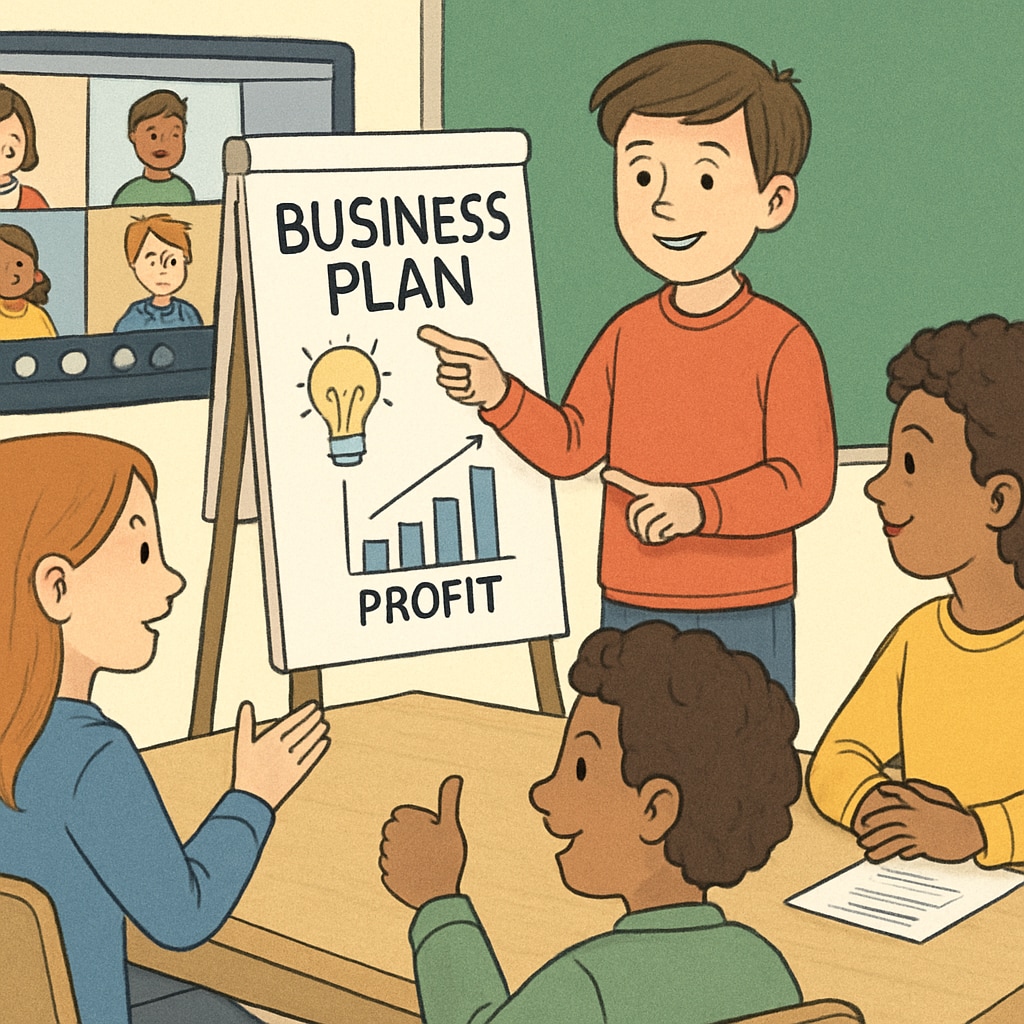In a groundbreaking initiative, a group of high school students has founded a nonprofit organization that offers free virtual business courses for teens aged 8-14. This program fills a critical gap in traditional youth education systems by providing early exposure to entrepreneurial concepts and financial literacy. By empowering young minds to explore the fundamentals of entrepreneurship, the program aims to cultivate the next generation of innovators, leaders, and problem-solvers.
Why Business Education Matters for Youth
Business education is often overlooked in K-12 curriculums, leaving students unprepared for real-world challenges. While subjects like mathematics and language are essential, early exposure to financial literacy and entrepreneurial thinking equips children with practical life skills. For example, understanding how to manage budgets, assess risks, and identify market opportunities can significantly impact future success.
This nonprofit initiative recognizes that starting early is key. By targeting young learners, aged 8-14, the program introduces concepts that are both age-appropriate and engaging. As a result, students not only learn the basics of business but also develop critical thinking and problem-solving skills that translate into other areas of life.

How Virtual Business Courses Are Changing the Game
Virtual learning has become a powerful tool for delivering education to students worldwide. Especially in the realm of business education, online platforms allow for interactive and accessible learning experiences. The nonprofit’s free courses leverage these benefits by offering a flexible and inclusive environment where young learners can thrive.
Key features of the program include:
- Interactive modules that cover topics like budgeting, marketing, and business planning.
- Hands-on activities, such as creating mock businesses or presenting ideas to peers.
- Mentorship opportunities, connecting students with successful entrepreneurs.
By using a virtual format, the courses break down geographical and financial barriers, ensuring that all students—regardless of their background—have access to quality business education.
The Impact on Future Entrepreneurs
Early exposure to business concepts can inspire a lifelong passion for innovation and problem-solving. For many participants, these courses are their first introduction to entrepreneurship, sparking ideas that could evolve into real-world ventures. In addition to fostering creativity, the program emphasizes financial literacy, teaching students how to save, budget, and invest wisely.
Moreover, these skills aren’t just applicable to starting businesses—they’re valuable in any career path. Whether a student becomes a CEO, a nonprofit leader, or a freelancer, understanding the principles of business will provide a strong foundation for success.

Join the Movement to Empower Young Minds
As this nonprofit initiative gains momentum, it highlights the importance of investing in youth education. By providing free resources and mentorship, the program is helping to shape a generation of confident, capable leaders. Parents, educators, and community members can support this movement by encouraging young learners to enroll in these courses.
For those interested in learning more, organizations like Wikipedia on Financial Literacy or Britannica on Entrepreneurship offer additional insights into the importance of early financial education and entrepreneurial thinking.
By empowering children with knowledge, this initiative is not just teaching business—it’s building a better, more innovative future. Join the movement today and help inspire the leaders of tomorrow.
Readability guidance: This article uses clear and concise language, short paragraphs, and lists to enhance readability. Active voice is prioritized, and transitions such as “for example,” “as a result,” and “moreover” are used throughout for flow and coherence.


